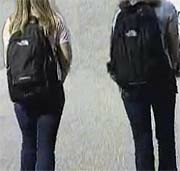
TUESDAY, Oct. 30 (HealthDay News) — Children who are homeless or move frequently do worse in certain school subjects than children who have more stable home settings, according to a new study.
About 1 million children in the United States are homeless and many more are believed to move frequently, according to the researchers, who looked at more than 26,000 public school students in Minneapolis.
Overall, children who were homeless at some time during the six-year study or moved often (three or more moves in a year) had consistently lower math and reading skills in elementary and middle school than other students.
These differences either stayed the same or grew worse as students approached high school, according to the study, which will appear Oct. 30 in the journal Child Development.
Within the group of children who were homeless or moved frequently, however, there was a wide variation in reading and math skills, with 45 percent scoring within the average range or better.
This suggests that many children who are homeless or move frequently still have what the researchers called “academic resilience.” Understanding how these students can still do well may offer clues for helping other students who struggle in school, study lead author J.J. Cutuli, a researcher at the University of Pennsylvania, said in a journal news release.
More information
The American Psychological Association has more about homeless children.

